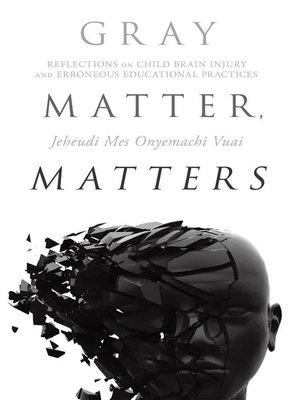Gray Matter, Matters
ebook ∣ Reflections On Child Brain Injury And Erroneous Educational Practices
By Dr. Jeheudi Mes Onyemachi Vuai

Sign up to save your library
With an OverDrive account, you can save your favorite libraries for at-a-glance information about availability. Find out more about OverDrive accounts.
Find this title in Libby, the library reading app by OverDrive.



Search for a digital library with this title
Title found at these libraries:
| Library Name | Distance |
|---|---|
| Loading... |
Gray Matter, Matters is a book that will revolutionize school and clinical practices. For the first time, professionals in the educational domain will be challenged to rethink by which method children with brain injury are to receive services. Neurodevelopmental disorders are frequently misdiagnosed as "learning disabilities." These disorders of childhood are presumed to be of psychological origin. This book discusses the myth of "learning disabilities," "emotional disturbances" and "other health impaired." The use of labels to remediate neurodevelopmental disorders is inappropriate and may lead to school dropout.
Nontraumatic brain injury (NTBI) typically results from biological and/or environmental factors. As such, NTBI will be manifest as learning, speech and language, motor, emotional and behavioral disturbances. These children do not have a history of traumatic brain injury (TBI). The lack of knowledge of the brain-behavior relationship leads to erroneous educational practices. When these practices are applied, children are punished for their inability to attain academic mastery. Teachers may be incorrectly blamed for failing to help children move out of the cycle of failure. When children present with learning, emotional or behavioral difficulties, professionals in the schools typically overlook biological antecedents. In this book, childhood disorders will be explained from a neurodynamic perspective. Now children with nontraumatic brain injury will finally get the recognition and assistance they need. Educators are challenged to embrace the tenets of cognitive neuroscience.
This is a must read for parents and professionals who desire to move children through the continuum of academic progress.







